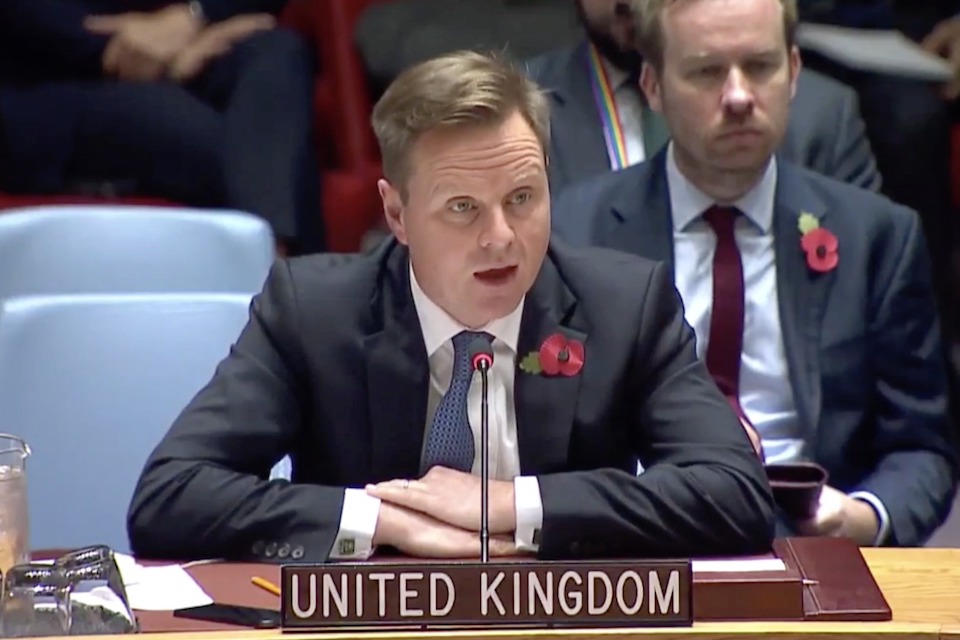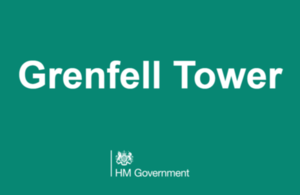Thank you very much Mr President, and as it’s the first time I personally am taking the floor may I congratulate you on the presidency and thank Bolivia for her presidency last month. Thank you too, to the High Representative for your briefing.
I think it’s clear that not enough progress has been made. At one level this isn’t a surprise, given the Syrian authorities’ track record. But there’s another level Mr President. I think it just beggars belief; chemical weapons are universally prohibited weapons. They’re prohibited by international law. Everybody on the Council, bar one member, stresses this and stresses the supreme importance of upholding that prohibition. And I think the Kuwaiti intervention laid out very well the historical place that chemical weapons hold in global nonproliferation regimes. So what part of “these are prohibited weapons” do Syria and Russia not understand? I think it’s almost absurd that we should have to rehearse each month quite how terrible these weapons are. It really ought to be globally recognized and globally upheld that we work to strengthen the OPCW, to strengthen the Chemical Weapons Convention, and to make sure these weapons are never used. That ought to be a universal good, Mr President, that everybody in the United Nations ought to be able to subscribe to and I think future generations will judge us very harshly, but will judge two countries particularly harshly for breaking that prohibition.
I think as well, as many speakers have said, the OPCW is doing good work. It is mandated to do this work and the Conference on States Parties have decided to strengthen the work that it does. There was an alternative Mr President. There was an alternative to have a Security Council mechanism, but that came to a grinding halt with a Russian veto.
Therefore we must all support the OPCW Director General and his work to implement the decisions adopted at the Special Conference of States Parties in June. And for our part, the United Kingdom looks forward to arrangements being put in place swiftly so OPCW can begin its work on attribution of chemical weapons attacks in Syria. And we call on all states who will be meeting in The Hague later this month to respect the decision that was taken by an overwhelming majority in June. We look to all international partners to engage constructively in discussions on the future work of the organization in Syria and elsewhere.
And on the funding point it’s in all our countries interest for the OPCW to receive the funding it needs to continue to uphold the global norms against chemical weapons.
On other issues Mr President, I just want to endorse what others have said about the importance of the political settlement and the importance of getting the constitutional committee established as within the Istanbul Summit Declaration which we very much welcomed at the time. And on Idlib of course we want that agreement to hold. It is the key to so much about the future of Syria and the future of the people in Syria.
I want to close Mr President by just addressing the White Helmets allegations. We keep hearing these allegations, and again it beggars belief that we should have to take the floor to defend some of the bravest volunteers working in Syria. They have confirmed, Syrian Civil Defense have confirmed, that none of their volunteers were involved, let alone killed, in the alleged incident referred to by the Syrian authorities in their recent correspondence, contrary to those authorities’ fabrications and repeated allegations that the UK and our allies are preparing a chemical weapons attack are malicious. They’re absurd and they are simply an attempt to distract and deflect attention from the real situation on the ground in Syria.
But I want to end by echoing what the French Representative said about we will respond appropriately if there is a chemical weapons attack and that attack won’t come from us. Thank you Mr President.


